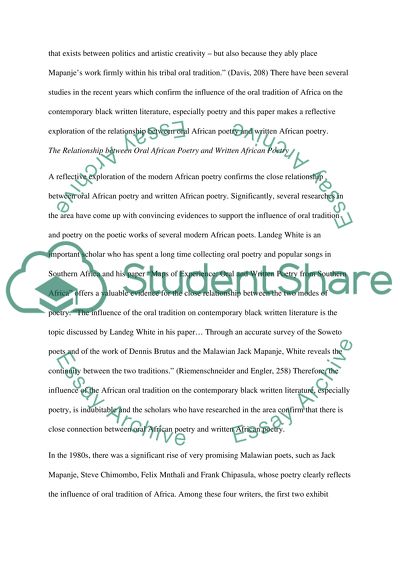Cite this document
(“African literature Essay Example | Topics and Well Written Essays - 1750 words”, n.d.)
Retrieved from https://studentshare.org/literature/1505274-african-literature
Retrieved from https://studentshare.org/literature/1505274-african-literature
(African Literature Essay Example | Topics and Well Written Essays - 1750 Words)
https://studentshare.org/literature/1505274-african-literature.
https://studentshare.org/literature/1505274-african-literature.
“African Literature Essay Example | Topics and Well Written Essays - 1750 Words”, n.d. https://studentshare.org/literature/1505274-african-literature.


